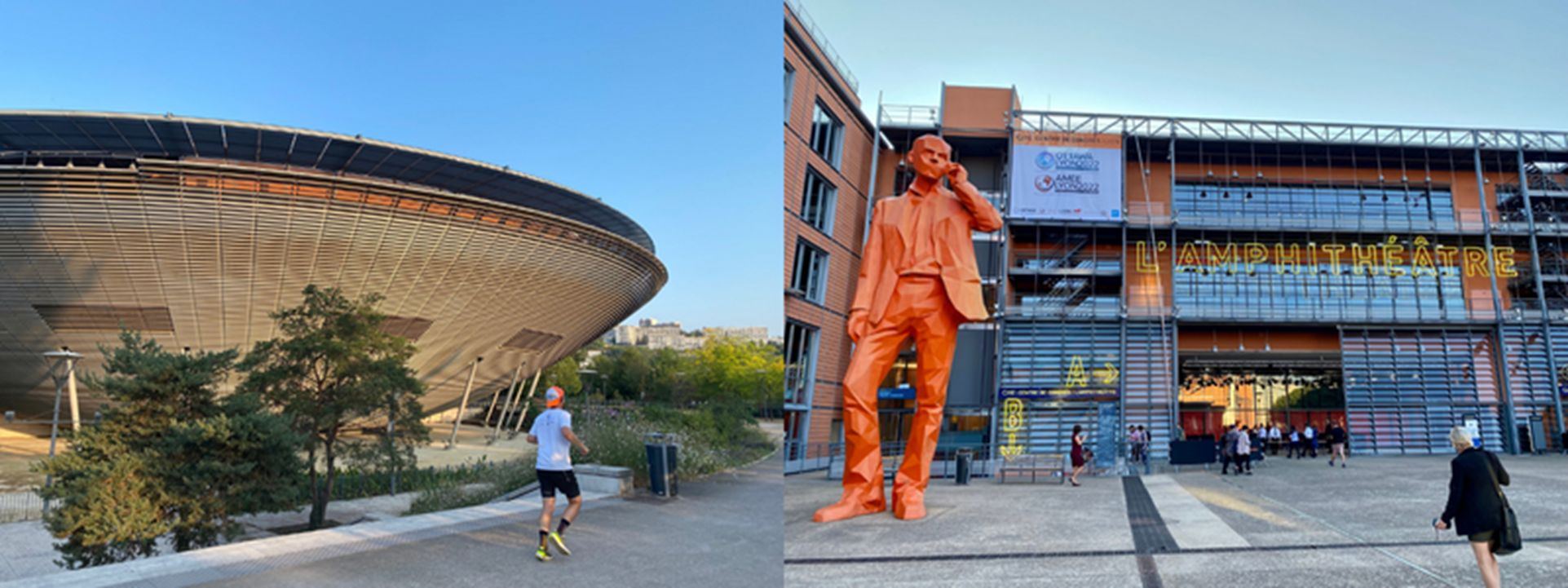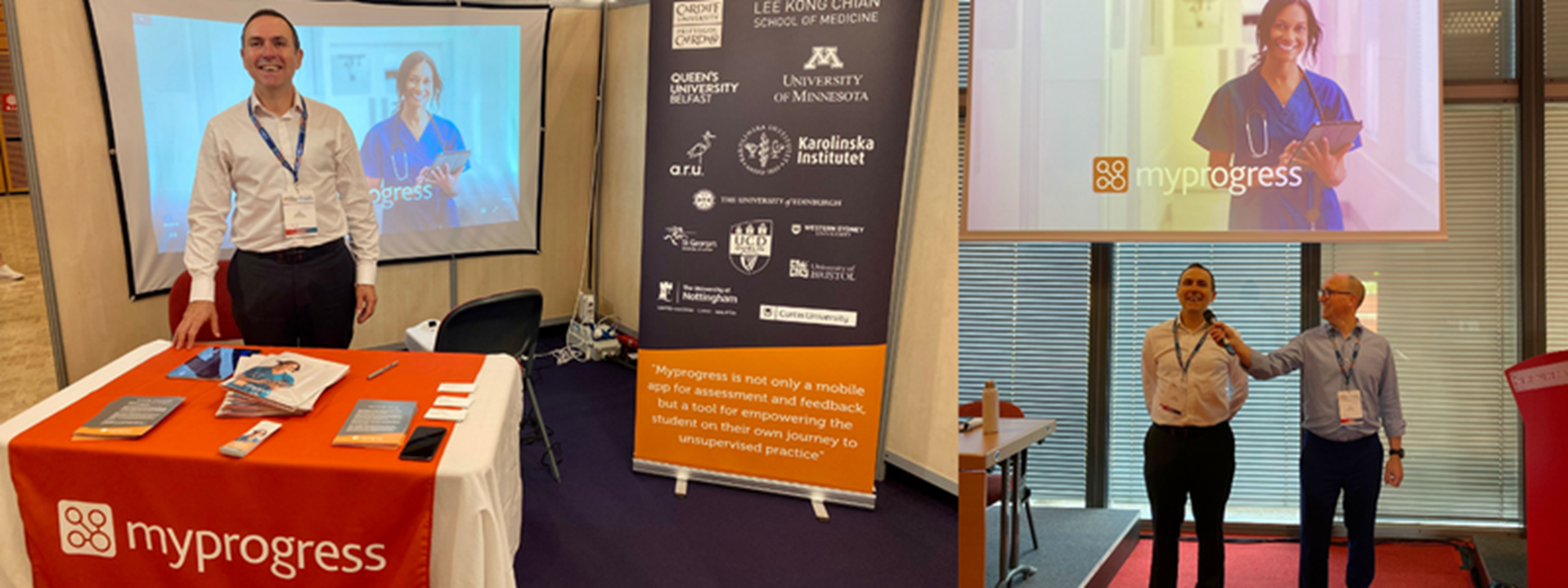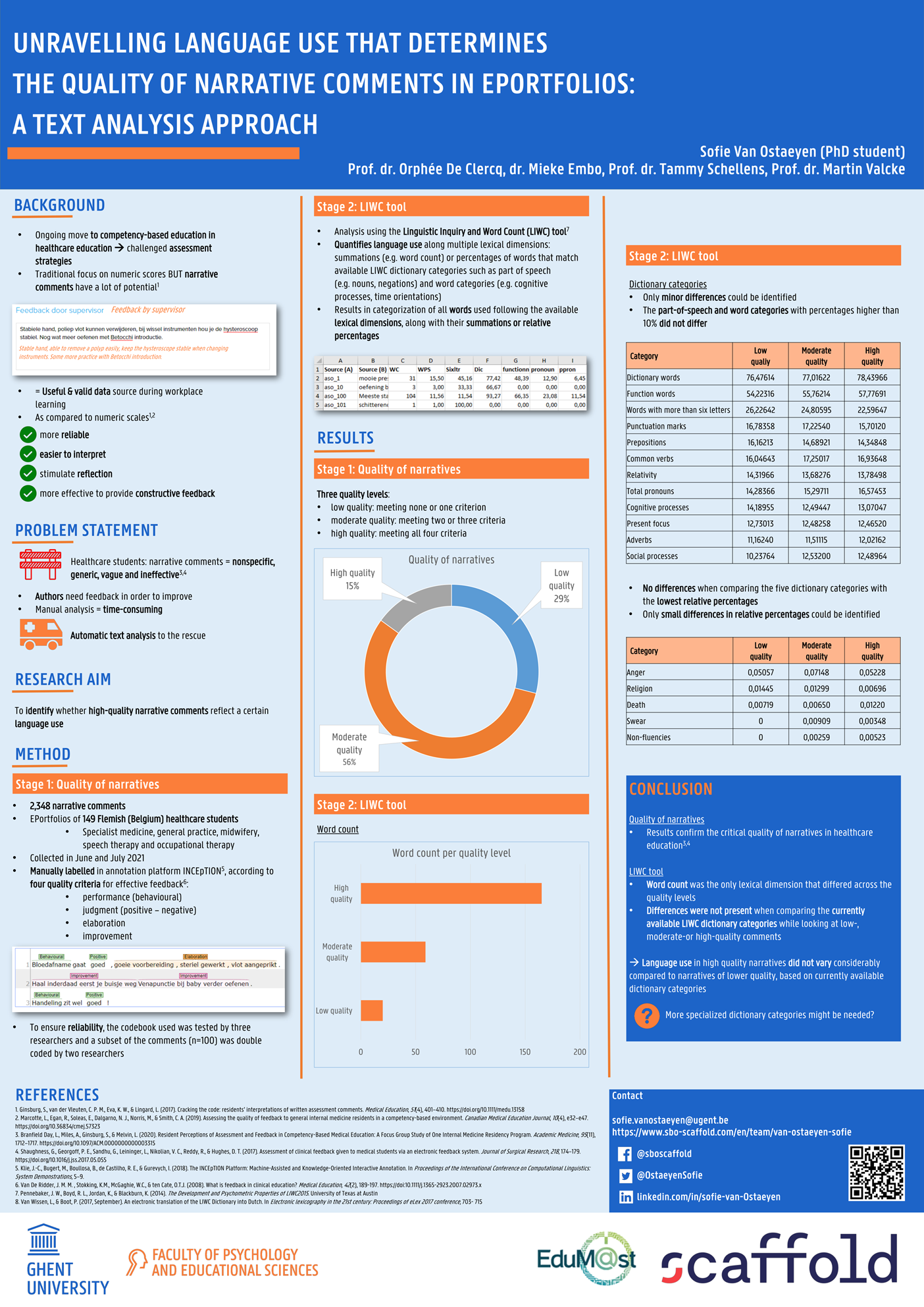Three of the MyKnowledgeMap team travelled to the hybrid AMEE and Ottawa 2022 conference, which took place online and in-person at the UFO-like Palais des Congrès convention centre in Lyon.

The team split their time between the exhibition stand, attending sessions, and hosting a demo session. The MyKnowledgeMap stand focussed on the Myprogress product; an e-portfolio and workplace-based assessment tool used by many medical schools around the world.

Paul Mahoney and Tom Holland from the MKM team ran a session titled ‘Using tech to improve workplace-based assessment’. The session explored the current challenges faced by academics and assessors in medical education and looked at how Myprogress overcomes them. The team enjoyed hosting a session and loved meeting so many people face to face.
One of the sessions the MyKnowledgeMap team attended was ‘8E Short Communications – Competency Based Medical Education 2: Assessment’
The Chair for the session was Leila Niemi-Murola; Associate professor, clinical lecturer, consultant and anaesthesiologist at the University of Helsinki and Helsinki University Hospital in Finland.
The first speaker was Takeshi Kondo, from the Center for Postgraduate Clinical Training and Career Development at Nagoya University Hospital in Japan. His talk focussed on the use of rubrics. Rubrics are commonly used when assessing medical and healthcare students in clinical practice in outcome-based education (OBE) in the UK and are becoming increasingly used around the world. In 2019 Japan introduced nine competencies and generic rubrics of competencies for medical residents, and Takeshi Kondo explored the local adaptation of these, and the consequences for assessors. His talk, titled ‘Locally adapting generic rubrics for the implementation of outcome-based medical education: A mixed methods approach’, explored a study him and his colleagues had carried out at the General Internal Medicine Department of Nagoya University in Japan. They had studied the effect local adaptation has on generic rubrics and found that “local adaptation decreased their cognitive load leading to consistent ratings, increased writing of comments, and promoting reflection on instruction”.
Next to speak was Beth Barron of Vagelos College of Physicians and Surgeons at Colombia University in the USA. Her talk, ‘Utilising Natural Language Processing to Sort and Display Narrative Feedback into a Competency Based Framework’ explored how to efficiently and effectively use narrative feedback from students' clinical assessments to ultimately provide the best possible patient care. Besides checklists and numerical scoring assessments, using narrative comments to measure progress offers a more in-depth reflection of a student's skills and attitudes. Whilst narrative feedback offers a rich insight into a student's progression and can help educators to intervene in a timely manner when a student is struggling, “this data can be difficult to easily sort through and interpret, and NLP offers a potential solution by allowing an automated sorting of data into more usable categories” (B. Barron 2022).
Friederike Bennett from Charité-Universitätsmedizin, Dieter Scheffner Center in Berlin, Germany spoke next on ‘Adding validity evidence to Core end of undergraduate training EPAs by examining students’ learning curve’. The presented study looked for validity evidence of the defined set of EPAs set by a team of experts in Germany by exploring students’ learning curve over their undergraduate course. The team found that “the study provides complementary evidence for the validity of the defined set of EPAs, as students reported to be able to perform the majority of EPAs and procedures under a decreasing level of supervision in the course of their study” (F. Bennett 2022).
The team also found this ePoster particularly interesting, “Unravelling language use that determines the quality of narrative comments in ePortfolios: a text analysis approach”. By Sofie Van Ostaeyen (PhD student), Prof. dr. Orphée De Clercq, dr. Mieke Embo, Prof. dr. Tammy Schellens, Prof. dr. Martin Valcke. Find it at: https://api.ltb.io/show/ABPUG

In other news from around the event, it was great to hear that AMEE will be launching a new 'Community’ tool later this year, designed to connect people in a similar field through themed groups, networking, resources, mentoring, and collaboration.
The team from Imperial College London and The Medical Education Research Unit (MERU) were at the AMEE conference and were excited for the Transform MedEd event they are hosting 11-12 November. The MyKnowledgeMap team will be exhibiting the Myprogress tool at Transform MedEd, so if you’re going then please stop by to say hello!
That's it for now. The team had a fantastic time and are already looking forward to AMEE Glasgow 2023, hope to see you there!
Say Hello
Get in touch with the team
If you would like to discuss one of our learning technology platforms, or have an exciting project
you would like us to get involved in, feel free to get in touch with the team.
